 |
All of the hype I hear about this album is how liberating it is that a woman can use the term "blowjob" in a song. If that were all Exile in Guyville had going for it, you wouldn't see it on this list, because regardless of how sex-starved indie rockers are on the whole, we also have an eye for songwriting. My favorite song on this album is "Glory," which is one of the most riveting ninety-second songs I can remember. Its prowess is not based in profanity, rather a chilling description of a sexual scenario without this. "Stratford-On-Guy" has the narrative approach down to a calm confidence. - Sebastian Stirling
|
19. R.E.M. - Automatic For The People (Warner Brothers, 1992)
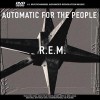 |
With 1991's Out Of Time and its massive hit single "Losing My Religion", R.E.M. had finally achieved the massive commercial success that for so long had seemed like an inevitability that somehow was just not happening. If Out of Time was a very strange record to break into the mainstream with, a good, yet uneven collection of love songs with chamber music arrangements and mature lyrical themes, than it's successor, Automatic For The People was downright bizarre. Even to this day, it seems unlikely that a record as somber and melancholy as Automatic could have attracted such a large audience. A cynical explanation could be the combination of career momentum and good timing (the album arrived at the beginning of the recession), but it's more than likely the fact that songs like "Man on the Moon" and "Everybody Hurts" are so well crafted and timelessly universal that nothing could have stopped it from being huge. The prevailing lyrical theme on the record is mortality, with recurring references to deceased celebrities (Montgomery Clift, Andy Kaufman, Elvis Presley), songs about families coming together only to realizing how far they've drifted apart ("Sweetness Follows"), interior monologues on aging from the perspective of the elderly ("Try Not To Breathe") and reflections on youth ("Nightswimming", "Drive"). The arrangements on the album sound as if they are rendered in the same black, white, and grays that make up the images in the albums packaging, each song perfectly complementing the lyrical themes presented in Michael Stipe's vocal, more soulful and affecting than ever before. Perhaps the greatest strength of Automatic For The People is that while the record addresses such downbeat themes, the songs never succumb to depression or nihilism - instead, they all are uplifting and celebrate life despite its hardships and pain. By the end of the final song, when Stipe sings the line "All of this is coming your way", it makes a person want to live their life, to embrace every moment knowing that their own life is very short, and precious, which I think is the ultimate message of the record. - Matthew Perpetua
|
18. Beck - Odelay (DGC, 1996)
 |
Why do people think Beck is "ironic"? Do they think that when he sings
"Karaoke weekend at the suicide shack / Community service and I'm still the
mack", he doesn't mean it from the bottom of his heart? Is Beck not serious
about taking every neato sound of the past fifty years' worth of pop music
and cramming it into one raggedy, funky, irresistibly catchy package? Is it
"ironic" to want to get one's fellow skinny white boys to shake their
bon-bons with impunity? If I say I honestly love Odelay, am I really
just being ironic about it? - Nick Mirov
|
17. Smashing Pumpkins - Siamese Dream (Virgin Records, 1993)
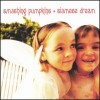 |
A record that, arguably, rock music today owes just as much a debt of
gratitude to as Nirvana's Nevermind or Pearl Jam's Ten (which is
astonishingly not appearing on this top 100 list). This 12 song
masterpiece creates nonverbalized landscapes throughout, yet manages to
pack a desperately angered wallop through the frail, child-like stature
and voice of Billy Corgan. Siamese Dream created a different kind of
rock youth intensity. One that took anthemic arena rock power,
dismissing the self-absorbed delivery of the common hockey venue
frequenters, and introducing an element of apathetic vulnerability, an
alien addition to the rock mainstream at the time. Siamese Dream parallels The Who's Quadrophenia as a troubled youth's 12 step help program, with lyrics not so much drenched in metaphor than the aforementioned Nirvana or Pearl Jam, rather conversing than telling
a story.
- Ryan Chavez
|
16. Fugazi - Red Medicine (Dischord Records, 1995)
 |
There's a particularly depressing scene in Jem Cohen's film Instrument in which he interviews various audience members outside of a few venues
on Fugazi's tour in support of Red Medicine. The reactions from the people almost universally miss the point, from speculation of the band trying to find out just how many records they could sell, to accusations of the band thinking that
they were "big rock stars" to dismissals of the record as being a "vast departure from their early work" and thus, a total failure. While it is true that Red Medicine was a departure from their tried and true sound, it was by no means a failure.
Emphasizing the reggae and pop influences that were already a part of the band's sound and combining it with experiments with dub and feedback, Fugazi came into their own on Red Medicine, making good on the promise of the transitional
(at least in retrospect) music on 1993's In On The Kill Taker. Though hardly a concession to the mainstream, the music on Red Medicine is among the band's catchiest and accessible, from the opening "Do You Like Me" to the riffy pop of "Target",
in which Guy Picciotto memorably realizes that he "hates the sound of guitars". There were revelations on Red Medicine as well. Joe Lally turns in his first vocal performance on the guitar and feedback centerpiece, "By You", Picciotto displays his talent for
playing the clarinet on the menacing dub track "Version", and the band ads a tenor saw and falsetto vocal to complement the ska / hip hop "Fell, Destroyed". Red Medicine is the sound of a band in motion, pushing itself to experiment with sound and forms,
refusing to sit still in a genre of bands clinging to the past to the point of stale ritual. Contrary to what the kids in that parking lot thought, Red Medicine is true punk rock, a commitment to moving forward and challenging the audience with its politics, both sociopolitical and musical. - Matthew Perpetua
|
15. Beastie Boys - Check Your Head (Capitol Records, 1992)
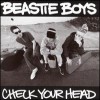 |
They gained fame for being obnoxious, but they gained a genuine career by
showing us that they were justified. Check Your Head smokes; it's sometimes as
dumb and self-obsessed as Licensed To Ill, but it's a self-aware sort of
dumbness. Sampling Cheap Trick, Ted Nugent, and, um, themselves, the Beasties
reinvented themselves as the last word in hipness. Enlisting a carpenter as
keyboardist / fourth member and army of percussionists, the group broke up things
between goofy rhymes like "Professor Booty" and "Finger Lickin' Good" with
surprisingly well-played funk instrumentals. "What 'Cha Want," with its low-fi
production and even lower-fi video, proved that they could still straight-up
rhyme if they had to. Unfortunately, for the rest of the decade, they rested on
Check Your Head's laurels, releasing some okay if overloaded sequels (Ill Communication,
Hello Nasty) and devoting most of their energies to their vanity record label
and P.C. political concerns.
- Western Homes
|
14. Rodan - Rusty (Quarterstick Records, 1994)
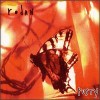 |
If any album of the nineties has been wrongly tossed off as a follower of Spiderland, it's this one. Garnering my personal number one vote and a rather disturbing obsessive with finding all of their other footsteps, Rusty is an album where the clay is constantly being remolded. The word intensity can only tell of a shade of this album's power, as dynamics are not viewed as mere crescendo and decrescendo couplets, but as a brutal adherence to the paranoid delusions of the three singers. I can't help but to believe that this entire album, not just the lulls of the opening "Bible Silver Corner," is orchestrated with an attention to detail that killed any possibility of another one. - Sebastian Stirling
|
13. Guided by Voices - Bee Thousand (Scat Records, 1994)
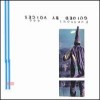 |
The genius of Guided By Voices was their short songs and terrible production.
The curse of Guided By Voices was their short songs and terrible production.
Both of these statements are true. Both of these statements are false. Does it
matter? Bee Thousand made us wonder whether these indelible songs would sound
better with more production or there was some sort of magic ambiance in the basement
of Tobin Sprout's Dayton home that just made music better. Packed with more
great melodies than any two other records you could name, Bee Thousand was almost
heartbreakingly good, constantly improving on its tunefulness as the record
went on. "Tractor Rape Chain" stunnned, then a few tracks later there was
"Smothered In Hugs," then "Echoes Myron," then "Queen Of Cans & Jars," then "I
Am A Scientist." We can forgive Robert Pollard the constant stream of lineup
changes and lousy solo work that have followed, because the genius of Bee
Thousand is penance for every sin.
- Western Homes
|
12. Shudder to Think - Pony Express Record (Epic Records, 1994)
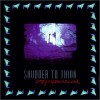 |
On the way up to my girlfriend's house for Thanksgiving break, I popped in this album. My girlfriend's father lauded the numerous time signature changes and how well the rhythm section was able to keep up. Craig Wedren's operatic precision was another element that was praised, fitting into moments of vocal delirium in "Chakka," the pulsating "9 Fingers on You," and the coos of "Full Body Anchor" with equal precision. The guitars rotate around these anchors, and the display the authority in not adhering to standard connotations of what they should be doing. The miraculous part is that despite all of this, Pony Express Record is still greater than the sum of its parts. - Sebastian Stirling
|
11. Nirvana - In Utero (DGC, 1993)
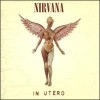 |
He'd already inadvertently spoken for a generation with Nevermind, so all there
was left for Kurt Cobain to do was speak for himself. The result was In
Utero, a record whose titled suggested that these fine tunes weren't even the tip of the
iceberg of what Cobain had left to say. It's a tragedy, particularly
considering Nirvana was clearly on the way up. "Serve The Servants" was their
most joyous burst of therapeutic noise, "All Apologies" their canniest pop
number, "Rape Me" their strongest rebuke yet to their critics. Produced with
wonderful clarity by Steve Albini, who conscientiously leaves in all the rough
edges that Butch Vig smoothed out on Nevermind, In Utero sounds like most like
the Nirvana Cobain envisioned. It's a crime we'll never hear where that vision
would have taken him.
- Western Homes
|

